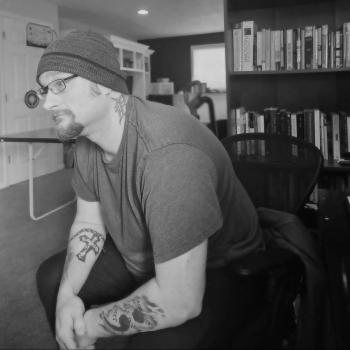
The Southern Baptist Convention (SBC) is among many groups considering the efficacy of Critical Race Theory (CRT) as a way to educate their constituents on the issue of racism. Not surprisingly the SBC was quick to dismiss CRT as leftist political hokum that “has no place in the Baptist faith and tradition.” The leader of the SBC, Al Mohler, has gone as far as to say that it’s “anti-biblical”. These sentiments caused many African American pastors within the SBC to protest and threaten to leave the SBC. Now the SBC is scrambling to try and appease their African American pastors through additional “conversations”.
This is especially significant since the SBC’s oldest theological seminary was founded (1859) as a pro-slavery school. Although the SBC’s seminary has recently condemned slavery, as well as the ill-treatment of African Americans throughout history, it still defends its historical roots as a product of the economic times in the South.
To say that CRT is divisive is an understatement. It seems like anything in today’s polarizing age gets sucked into the political realm and becomes more convoluted as a result. CRT can be confusing and overwhelming with the amount of information (accurate and inaccurate) that is out there.
Note: This is merely a summary of CRT and not meant to be a comprehensive guide. This should be used only as a supplement for your own research.
What is Critical Race Theory (CRT)
One of the reasons CRT gets a bad reputation is because its precursor Critical Legal Studies (CLS) was built upon the Marxist-oriented Critical Theory philosophy. Whether or not hints of Marxism can still be detected in CRT is up for debate. If CLS was meant to deal with racism within the legal system, then CRT was meant to deal with the socio-political aspects of racism.
CRT gained notoriety in the late 1980s propelled by the philosophical writings of Derrick Bell and was meant to address the shortcomings of political liberalism. Although political liberalism was equipped to handle the larger more predominant issues of race, it was unable to address the smaller systemic problems of racism. The very problems that are still prevalent today. (This is not to say that overt racism doesn’t still exist, but to say that much of the overt racism is a product of “smaller” systemic problems.) As an aside, I prefer to use the term “micro-racism” as opposed to “smaller racism” because it seems to render a quality of being less important, which is not the purpose of the term.
CRT is built on two premises: First, race is not a biologically natural trait, but an association we make based on specific phenotypes (hair, skin color, eyes, geographic location, etc.). Race is, therefore, a social construct that is meant to outline inequalities between two groups. However, these racial categories are used to articulate inaccurate assumptions that promote unfair stereotypes. Race-based biases and assumptions are evident throughout American history and involve all races. For example, in colonial times the Irish were viewed by some as poor, unkept drunks. Others thought the English were upright and educated, that Germans were all farmers and Scots were hillbillies.
There are many components or theses within CRT. Below are two that stand out to me.
CRT states that many “systems” are inherently favorable towards the group that is in power. In the case of the United States, the group in power has generally been straight white men. (At some points in history, “Christian” might be another attribute of those in power). Much of American society has and continues to exploit oppressed people; for example, lower wages for African Americans, women, Latinos, etc., for doing the same work as white men.
Perhaps most controversial is CRT’s claim that racism is so innate in U.S. society that it has become normalized. The treatment of African Americans by law enforcement is a notorious example of this innate normalization – stemming from a vial history of racist laws in the U.S. since its formation. Racism is so embedded in the law enforcement system today that it occurs throughout the process – from the training of law enforcement officers to unequal sentencing by biased judges. Some within the system may not see the racism blatantly as it has been explained, justified, and effectively normalized.
This normalization happens in many aspects of society, including within the language and assumptions people make about other races.
Some Concluding Thoughts
The denial of racism by those in power is perhaps the single most detrimental factor to the advancement of equality in the United States. To deny racism exists is to ensure that it continues. And it continues because it gives those in power a continued advantage over those they oppress. I hear Christians (particularly white evangelicals) argue that racism doesn’t exist – that it is just some made-up left-wing conspiracy. To this, my response is, “that is exactly what an oppressor would say about those whom they oppress.” For many white evangelicals, racism falls under the category of “fake news”. This is the willful ignorance of those who clearly have no African American friends they can turn to, to verify the claim itself.
Christians need not look any further than African American pastors in the SBC to listen and learn about racism in this country. Many of these pastors have the same theological persuasion as the racism deniers and yet they argue that racism does exist. The evidence of racism (in all of its forms) is so plentiful that it makes one question the motives of those who deny it exists. I would argue that to deny racism exists is to be a racist.
The oppressor has no authority to claim that an oppressed people group is not being oppressed. Instead of quickly turning something into a political issue (which is how Americans often abstract important things, so we don’t have to become personally invested), we should ask questions and listen to what those who are being oppressed have to say.
CRT is not a perfect solution. It certainly has its flaws, but it also acts as a voice; a voice that can bring to light the inequality that exists within much of American society. Hopefully, one-day people will understand that equality within a society is far more beneficial for that society than oppression. Providing opportunities for some does not have to mean that others are excluded. This is a fallacy many argue. A larger pool of capabilities is fostered by providing equal opportunity to all people.
Despite what the SBC claims, there is nothing within CRT that is “anti-biblical” because there is nothing overtly “biblical” about the theory. It’s a cultural theory not developed from scripture. The only reason it seems that individuals like Al Mohler make theological claims about CRT is because it is espoused by the left, which to him is an entire political wing that is “anti-biblical”. In other words, there is nothing good that can come from the left. Therefore, CRT is a victim of guilt by association. Claims like that should always be a red flag to critically thinking people. Whenever anyone claims there is nothing good from the other side, it is clearly an over-exaggeration and should not be accepted as true. The SBC has experienced a number of high-profile exits as of late – and now it faces its biggest threat yet. It would do well to listen to those who can speak experientially to the issue of racism rather than continue to allow white, straight men to bloviate on issues they know nothing about.
You can view my UNenlightenment YouTube Channel HERE
You can view my UNenlightenment Podcast HERE
You can follow me on FaceBook HERE


















